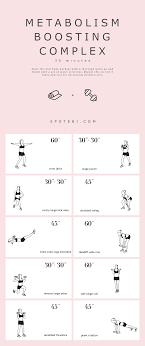The Importance of Workout for Women
Regular exercise is crucial for maintaining overall health and well-being, and this holds especially true for women. Engaging in a consistent workout routine offers a myriad of benefits that extend beyond physical fitness.
Physical Benefits
Exercise helps women build strength, improve cardiovascular health, and maintain a healthy weight. It can also reduce the risk of chronic diseases such as heart disease, diabetes, and certain types of cancer. Additionally, regular physical activity can enhance flexibility, balance, and coordination.
Mental Health Benefits
Workouts can have a profound impact on mental health by reducing stress, anxiety, and depression. Physical activity releases endorphins—often referred to as “feel-good” hormones—that boost mood and promote a sense of well-being. Regular exercise can also improve cognitive function and enhance sleep quality.
Social Benefits
Engaging in group workouts or fitness classes provides an opportunity for women to connect with others who share similar health goals. This social interaction can foster a sense of community and support, making exercise not only beneficial for the body but also enjoyable and fulfilling.
Tips for Effective Workouts
- Choose activities you enjoy to make exercising more sustainable.
- Set realistic goals and track your progress to stay motivated.
- Vary your workout routine to target different muscle groups and prevent boredom.
- Stay hydrated before, during, and after exercise to optimize performance and recovery.
- Listen to your body’s signals and adjust intensity or duration as needed to prevent injury.
In conclusion, incorporating regular workouts into your lifestyle is essential for women looking to improve their physical health, mental well-being, and overall quality of life. Whether it’s strength training, cardio workouts, yoga sessions, or any other form of physical activity—prioritizing exercise will empower you to lead a healthier and happier life.
Top 8 Workout FAQs for Women: Weight Loss, Strength Training, and More
- What are the best workouts for women to lose weight?
- How many times a week should women work out?
- What are the benefits of strength training for women?
- Are there specific exercises that target problem areas for women?
- Is it safe for pregnant women to exercise?
- How can women prevent injuries during workouts?
- What is the role of nutrition in a woman’s workout routine?
- Can regular exercise help with managing hormonal changes in women?
What are the best workouts for women to lose weight?
When it comes to effective workouts for women aiming to lose weight, a combination of cardiovascular exercises, strength training, and high-intensity interval training (HIIT) can be highly beneficial. Cardiovascular exercises like running, cycling, or aerobics help burn calories and improve overall cardiovascular health. Strength training, including bodyweight exercises or weightlifting, not only builds muscle but also boosts metabolism to aid in fat loss. HIIT workouts, which involve short bursts of intense activity followed by brief rest periods, are particularly effective for burning calories and increasing metabolic rate post-exercise. It’s important for women to find a workout routine that they enjoy and can consistently follow to achieve their weight loss goals in a sustainable manner.
How many times a week should women work out?
When it comes to the frequency of workouts for women, it is generally recommended to engage in physical activity at least 3 to 5 times a week. The specific number of workout sessions can vary depending on individual fitness goals, current fitness level, and the type of exercise being performed. Incorporating a mix of cardiovascular workouts, strength training, flexibility exercises, and rest days is key to achieving a balanced fitness routine. It’s important for women to listen to their bodies, adjust their workout frequency as needed, and consult with a fitness professional to tailor a regimen that suits their unique needs and preferences.
What are the benefits of strength training for women?
Strength training offers numerous benefits for women, making it an essential component of any fitness regimen. Beyond building muscle and increasing strength, strength training plays a crucial role in boosting metabolism and promoting weight management. For women, in particular, this form of exercise helps enhance bone density, reducing the risk of osteoporosis—a common concern as women age. Additionally, strength training improves overall body composition, increases energy levels, and enhances functional fitness for daily activities. Embracing strength training not only empowers women to achieve their fitness goals but also contributes to long-term health and well-being.
Are there specific exercises that target problem areas for women?
When it comes to targeting specific “problem areas” for women through exercise, it’s essential to focus on a comprehensive workout routine that includes a variety of movements to strengthen and tone different muscle groups. While spot reduction is not possible, incorporating exercises that target areas like the core, glutes, thighs, and arms can help improve muscle definition and overall body composition. For example, exercises such as planks, squats, lunges, push-ups, and tricep dips can be beneficial in toning these commonly cited trouble spots. Remember that consistency and a well-rounded approach to fitness are key factors in achieving desired results in these areas.
Is it safe for pregnant women to exercise?
Engaging in regular exercise during pregnancy can be safe and beneficial for most women, as long as certain precautions are taken. It’s important for pregnant women to consult with their healthcare provider before starting or continuing an exercise routine to ensure that it is safe for their specific situation. Generally, low-impact activities such as walking, swimming, and prenatal yoga are recommended for pregnant women, while high-impact or contact sports should be avoided. Exercise can help improve circulation, reduce discomfort, and promote overall well-being during pregnancy. By following appropriate guidelines and listening to their bodies, pregnant women can safely incorporate exercise into their prenatal care routine.
How can women prevent injuries during workouts?
To prevent injuries during workouts, women can take several proactive measures. It is essential to start with a proper warm-up routine to prepare the body for exercise and increase blood flow to the muscles. Women should also focus on maintaining good form and technique during exercises to avoid strain on joints and muscles. Gradually increasing the intensity and duration of workouts can help prevent overuse injuries. Additionally, wearing appropriate footwear and using proper equipment for specific exercises can reduce the risk of accidents or strains. Listening to your body, recognizing signs of fatigue or pain, and allowing for adequate rest and recovery time are crucial in injury prevention during workouts.
What is the role of nutrition in a woman’s workout routine?
Proper nutrition plays a vital role in a woman’s workout routine as it directly impacts her performance, recovery, and overall health. Fueling the body with the right nutrients before and after exercise is essential for optimizing energy levels, enhancing muscle growth and repair, and supporting endurance. A balanced diet rich in lean proteins, complex carbohydrates, healthy fats, vitamins, and minerals is crucial for maintaining strength, stamina, and mental focus during workouts. Additionally, staying hydrated by drinking an adequate amount of water is key to regulating body temperature and preventing dehydration during physical activity. By paying attention to nutrition and making mindful food choices, women can maximize the benefits of their workouts and achieve their fitness goals more effectively.
Can regular exercise help with managing hormonal changes in women?
Regular exercise can play a significant role in managing hormonal changes in women. Physical activity has been shown to help regulate hormone levels, particularly estrogen and cortisol, which can fluctuate during different stages of a woman’s life. Exercise can aid in reducing symptoms associated with hormonal imbalances, such as mood swings, fatigue, and irregular menstrual cycles. Additionally, engaging in regular workouts can improve overall well-being, promote better sleep quality, and boost energy levels, all of which are essential for navigating hormonal changes effectively. By incorporating consistent exercise into their routine, women may experience better hormone regulation and find relief from the challenges that come with fluctuations in their hormonal balance.



